Political tensions are growing. What is the state of American democracy?
- Oops!Something went wrong.Please try again later.
WASHINGTON – Public confidence in government has plummeted. Election results are doubted by many. Partisanship and political violence are rising – and increasingly tolerated.
Is America in danger of losing its democracy?
The most recent Gallup poll found that 60% of American adults had little or no faith in the federal government – the highest level of dissatisfaction since the survey was launched in 1972. This is as Congress continues to investigate the storming of the U.S. Capitol on Jan. 6, 2021, by a pro-Donald Trump mob seeking to stop the certification of President Joe Biden's 2020 election victory.
Experts who study the country's worsening political divisions say faith in institutions is at a low point while civil distrust is at its highest in decades.
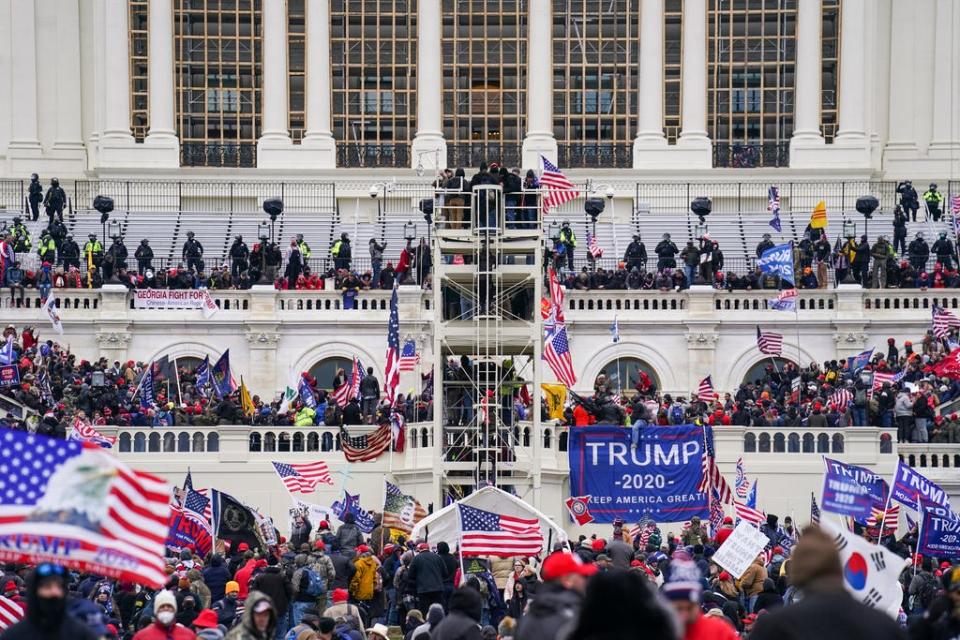
How bad is it? That's where the analysts we spoke with differ.
USA TODAY interviewed authorities on social media messaging, race in America, the presidency and bipartisanship about the volatility of the current landscape, how have we reached this point and what can be done to solve it.
They are: Donald Earl Collins, lecturer with the Department of Critical Race, Gender and Culture Studies at American University; Jason Grumet, president of the Bipartisan Policy Center; Rebekah Tromble, director of the Institute for Data, Democracy at George Washington University; and Tevi Troy, director of the Presidential Leadership Initiative at the Bipartisan Policy Center.
Public concern: A year after Jan. 6, Americans say democracy is in peril but disagree on why: USA TODAY/Suffolk poll
Here's what the four told USA TODAY recently in separate interviews. Their answers have been lightly edited for clarity:
USA TODAY: Where does the nation stand today?
TROY: American democracy is always tumultuous. It's always been tumultuous. Think back to Shays' rebellion or the Whiskey Rebellion. Think about the Civil War. In the 1960s... You had urban riots every summer of Lyndon Johnson's presidency. So there are always challenges with democracy and especially in the American system, we have challenges, but we're also a resilient system. We've survived those other eras. And I think we're gonna survive. But we also need level heads to prevail.
TROMBLE: It's become really clear that American democracy is in jeopardy. We tend to think of this as democratic backsliding. It's a term that we know really well from studies of other democracies around the world and the ways in which they have faced jeopardy or faced peril. And we're seeing a lot of the same cues, a lot of the same signals that we've witnessed in other democracies that backslid now coming to the foreground in the United States as well. And so there's real concern.
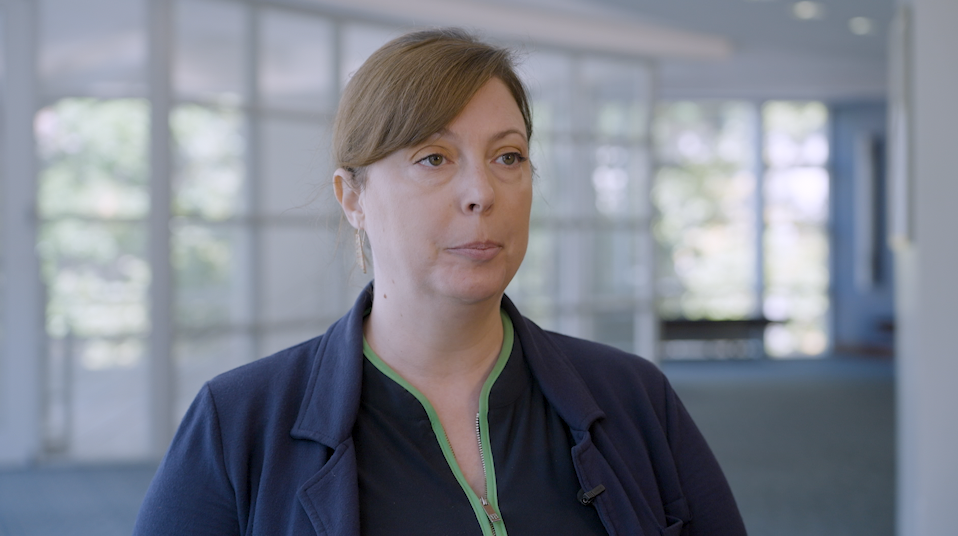
GRUMET: So there are two kinds of simplistic and exaggerated premises right now. One is that we are on an inevitable course for the destruction of democracy. And the lack of representation in the system has us locked into kind of this stumble toward authoritarianism. The other premise is: 'Hey, we've been at this for 250 years. There's this self-correcting aspect of representative government, Nothing to see here.' They're both right and they're both wrong. I think that it is reasonable to just understand that, fundamentally, democracy is always fragile and resilient. And the question is 'what's different now?'
USA TODAY: How did we get to this point?
TROMBLE: There's a really crucial way that mis- and disinformation are helping to undermine American democracy right now. And that is more fundamentally that they're creating a great deal of distrust: distrust for our political institutions, distrust for our media institutions and systems, and distrust for one another, distrust for our fellow citizens.
GRUMET: The risk is our election system. That is the place where, if you're worried, you should be paying attention and making sure that the public servants who lead our elections do not feel terrorized at home, making sure that we are not actually encouraging people to seek those offices who are fundamentally opposed to the premise of American democracy. Because I think at a base level, if you ask the American people: 'Do you think the person who got the most votes should win?' The answer would be yes.
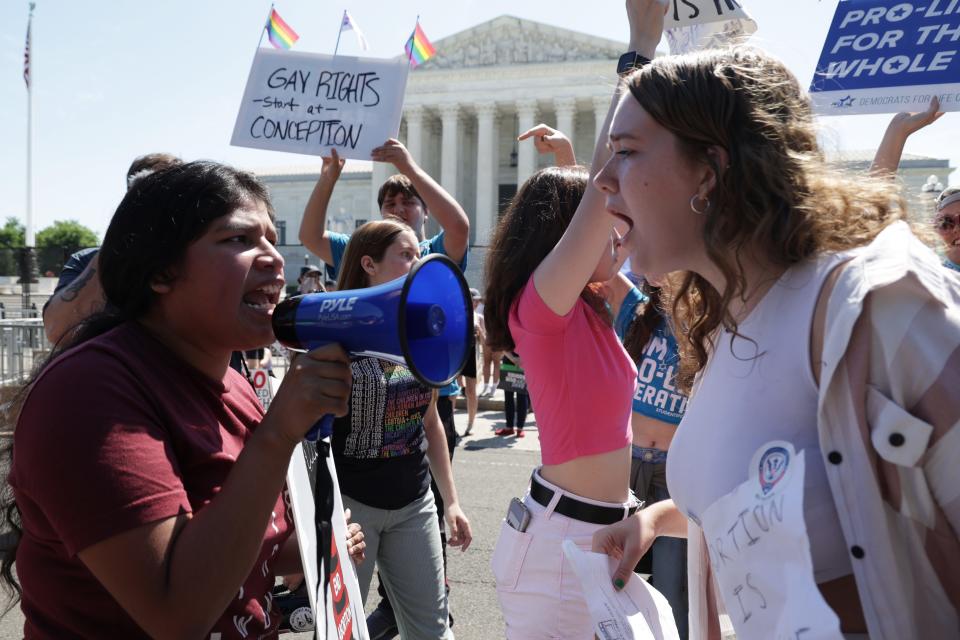
COLLINS: Because so many people started saying that we were post-racial just because of (Barack Obama's) election, people rested on our laurels. 'That's it. We don't have to do anything else with regard to American democracy. Our fundamentals are strong as a result of Obama being elected.' When in point of fact they weren't. They obviously were not because of everything that happened in the years afterward.
Earning back trust: Gov. Larry Hogan: Federal government must earn back Americans' trust after January 6
Election integrity: In 2022 midterms, a new 'Big Lie' battleground: secretary of state elections
USA TODAY: Social media has shouldered some of the blame for amplifying conspiracies and division. Is that fair?
GRUMET: Social media makes it possible for (a few) people to have an outsized influence on America. That creates opportunities and challenges. If they all love their Cocker Spaniels, that's great ... If they believe that there is a deep state trying to fundamentally deprive Americans of their freedom and we must rise up and revolutionize, that's a problem. So the capacity for a small number of people to have an exaggerated impact on the national psyche, I think, is new and something that we're working through.
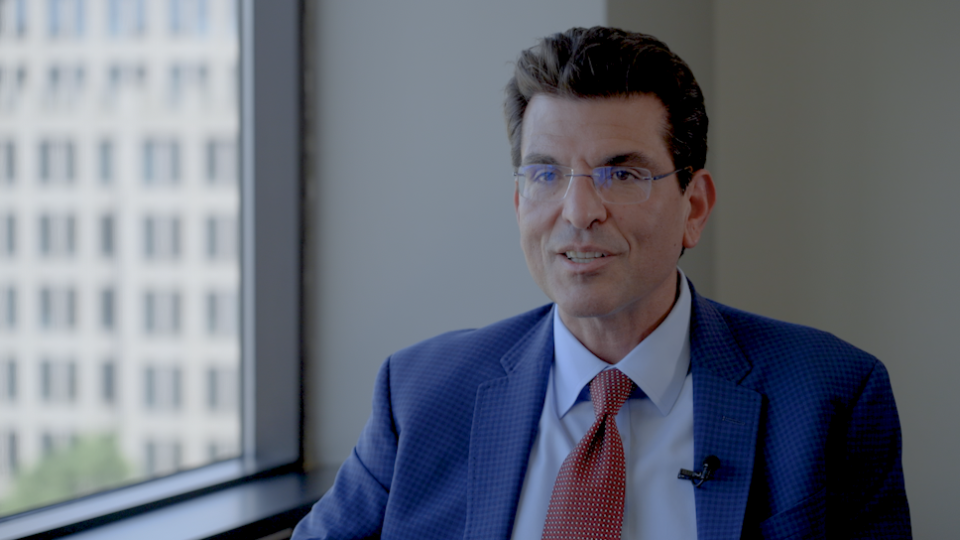
Internet dangers: FBI agents monitor social media. As domestic threats rise, the question is who they're watching
TROMBLE: It's created a new space within this larger ecosystem, that those who seek to manipulate the democratic process, manipulate voters and citizens can use to bring the sort of traditional means of communication directly to the people.
TROY: There's clearly a lot of noise in Washington and it seems like Democrats and Republicans don't get along, but I'm not sure that's necessarily happening on Main Street or in the rest of the country. So I think that social media amplifies many of these issues and makes some things look worse than they are. Social media also allows certain groups to get together in ways that they couldn't previously, and some of these people might be hostile to democracy or make more noise than they should. But I don't see day to day across the country that we're on the verge of falling apart.
Biden bashes Trump: 'MAGA forces' determined to 'take country backwards,' Biden says in speech from Philadelphia
Here to stay: Poll: Americans agree with rejecting 'political hostility,' but think divisions will rise
USA TODAY: How have the past few decades contributed to where we are now?
TROMBLE: We've been hearing a lot of questioning of democratic institutions really for decades now. Certainly, the rise of talk radio contributed to this over the last 25 to 30 years, and general questioning about the strength of our institutions and whether we could trust those institutions has contributed to all of this. But the acceleration that we've seen in the last four to five years has been absolutely dramatic. And that's primarily because we've had people at the top of our democratic institutions holding the greatest positions of power who have been willing to – and actively working to – undermine those very institutions to create and accelerate the distrust that we've seen.
GRUMET: I would say that the challenges that we have faced in the past, the actual fundamental societal rifts over race and Reconstruction and the Vietnam War, were much deeper than they are today. But the ability to weaponize the disagreements that exist today are much stronger than they were 20 years ago.
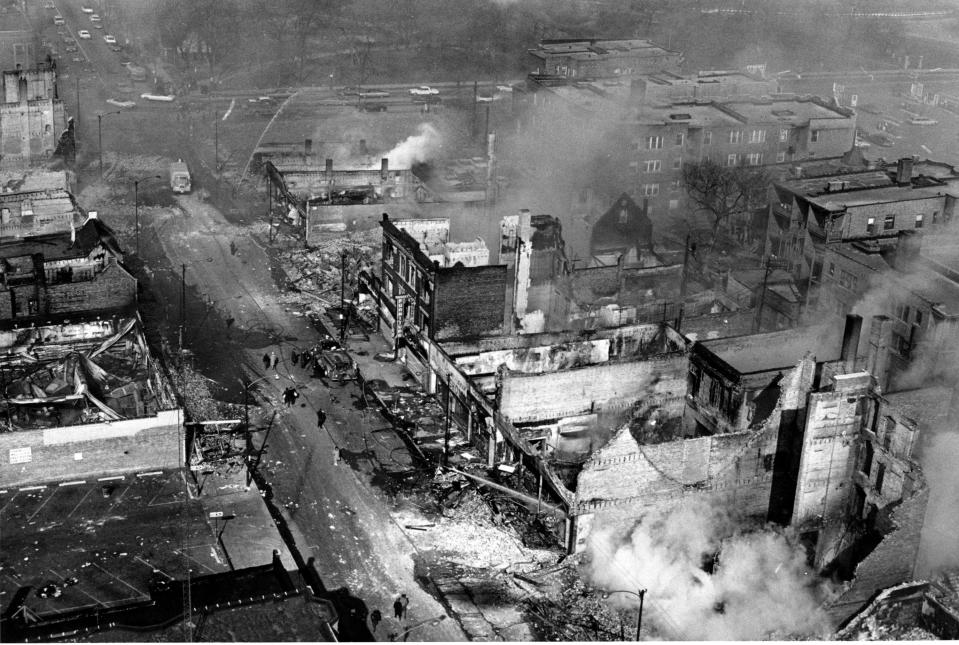
USA TODAY: Who's to blame?
COLLINS: The truth of the matter is that we've lived in a country that has been restricting people's civil rights and human rights right from the beginning. And that creates a lot of tension when you have a democracy that on paper looks like it's free, but in reality, restricts so many people from enjoying the freedoms that certain groups, particularly elite white males, have.
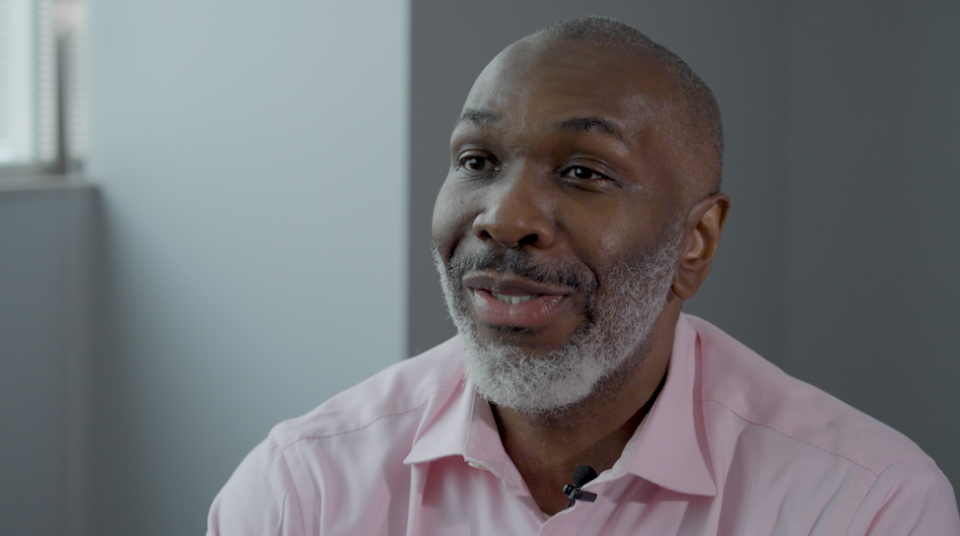
GRUMET: There are a very motivated, small number of people who are attacking a very weak point (the election system) in our democracy. It is a small number of people. The weak point is the exception, not the rule. But if not confronted directly, you could see an oversized traumatic impact on American democracy because of the combination of the weakness of our election system, the ability of social media to inflame and organize, and a leader in President Trump who believes he benefits from that dynamic.
Against the grain: Idaho's GOP secretary of state nominee stands out for an unusual reason: rejecting false election fraud claims
USA TODAY: The Constitution is often praised as a document sturdy enough to protect democracy for centuries. But do the founding fathers bear any blame for our present condition?
TROY: I wouldn't say that the founders anticipated TikTok or Twitter, but I think they anticipated faction. We know that from the Federalist Papers. They knew that, for example, if men were angels, no government would be needed as (James) Madison so brilliantly wrote. And I think that the founders created a document with a separation of powers and resilience built in that I think has lasted us for well over two centuries.
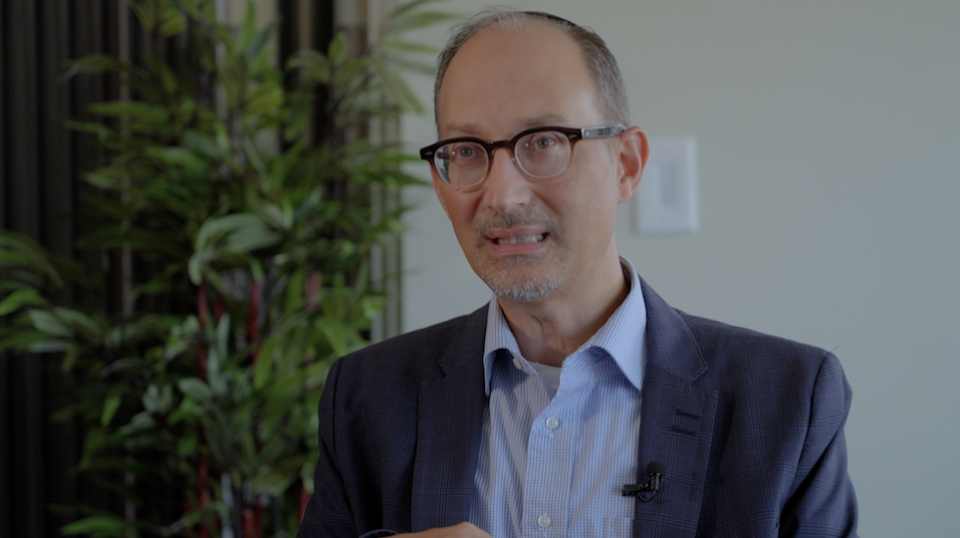
COLLINS: The biggest fallacy that we have in our country is the idea that these people designed a perfect document for a more perfect union. The truth of the matter is half of the members of this elite group that became our founding fathers, who wrote the constitution in 1787 and debated over it, they owned slaves. They were propertied folks. And the other half of them benefit in some ways because some of them reported (runaway) slaves. It was part of their shipping company or they were lawyers who designed documents who helped people (keep) their slaves generationally.
USA TODAY: What can be done to strengthen democracy?
TROY: The president is stepping in where Congress has created a vacuum. Going forward, it would be better if Congress could do its job. And the president can step back a little and not necessarily be the one-man unilateral determiner of what all our laws are (by using executive orders) because that's not the role of the president in our constitutional system. We have a separation of powers for a reason.
TROMBLE: We need to rebuild local news primarily because that's where people live. And if we want to rebuild trust in our institutions, in the political system, in the media system and amongst each other, people need to feel connected to their local communities and the information within their local communities. I think the second solution to this – and this is going to be hard for a lot of people to swallow – we need to see leadership all the way at the top of the Republican Party disavowing the disinformation and the fundamental undermining of democratic institutions that's been going on for the last few years.
Partisan divide: A Republican and Democrat walk into a town hall. Can they help fix Congress?
Bipartisan therapy: Congress is fractured. So Democrats, Republicans went to family therapy – together. We were there.
GRUMET: Bipartisanship is necessary for democracy, but not because it is this abstract moral good. We live in a divided country. The Senate is 50-50. The House switches back and forth by 5% or 6%, and people claim a giant mandate. But you know, the success of this country has long been that we've been able to create durable policy in the most diverse nation in the world. And the way that we have done that is forced our system to engage the breadth of those opinions so that the resolution of an issue actually has some staying power.
This article originally appeared on USA TODAY: What is the state of American democracy? 'In peril' or 'resilient'?

